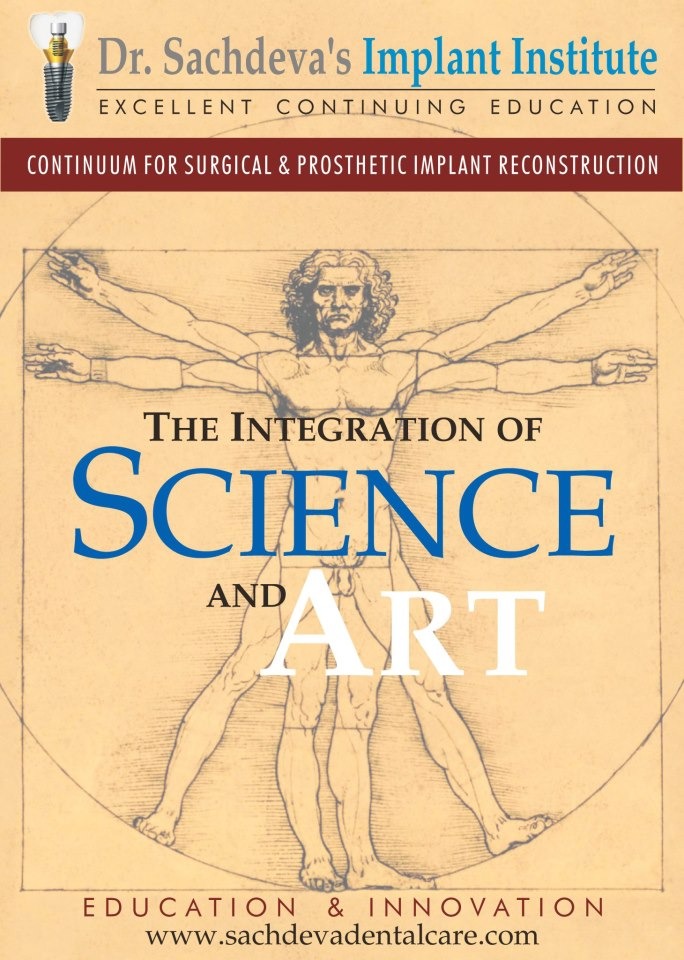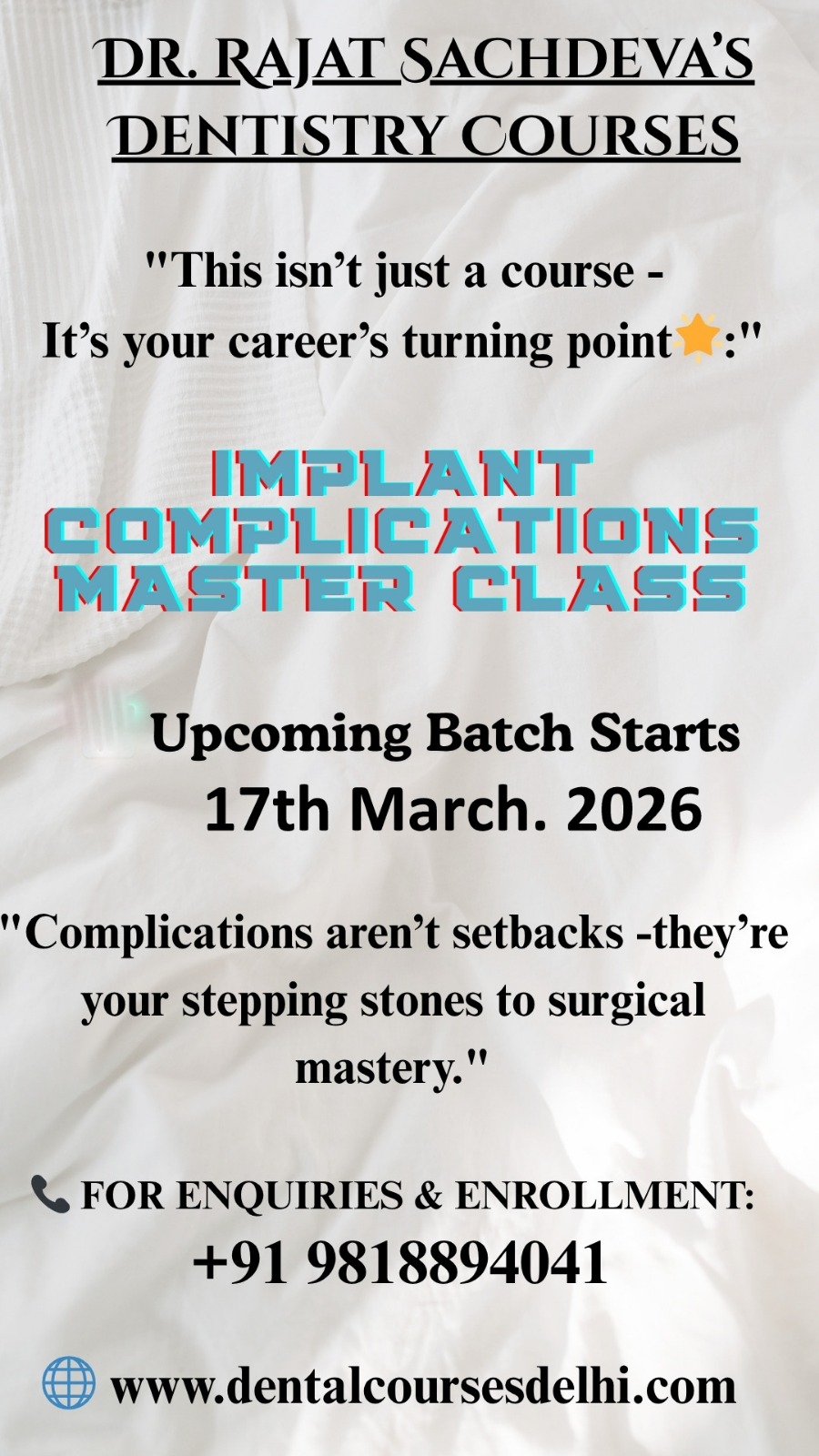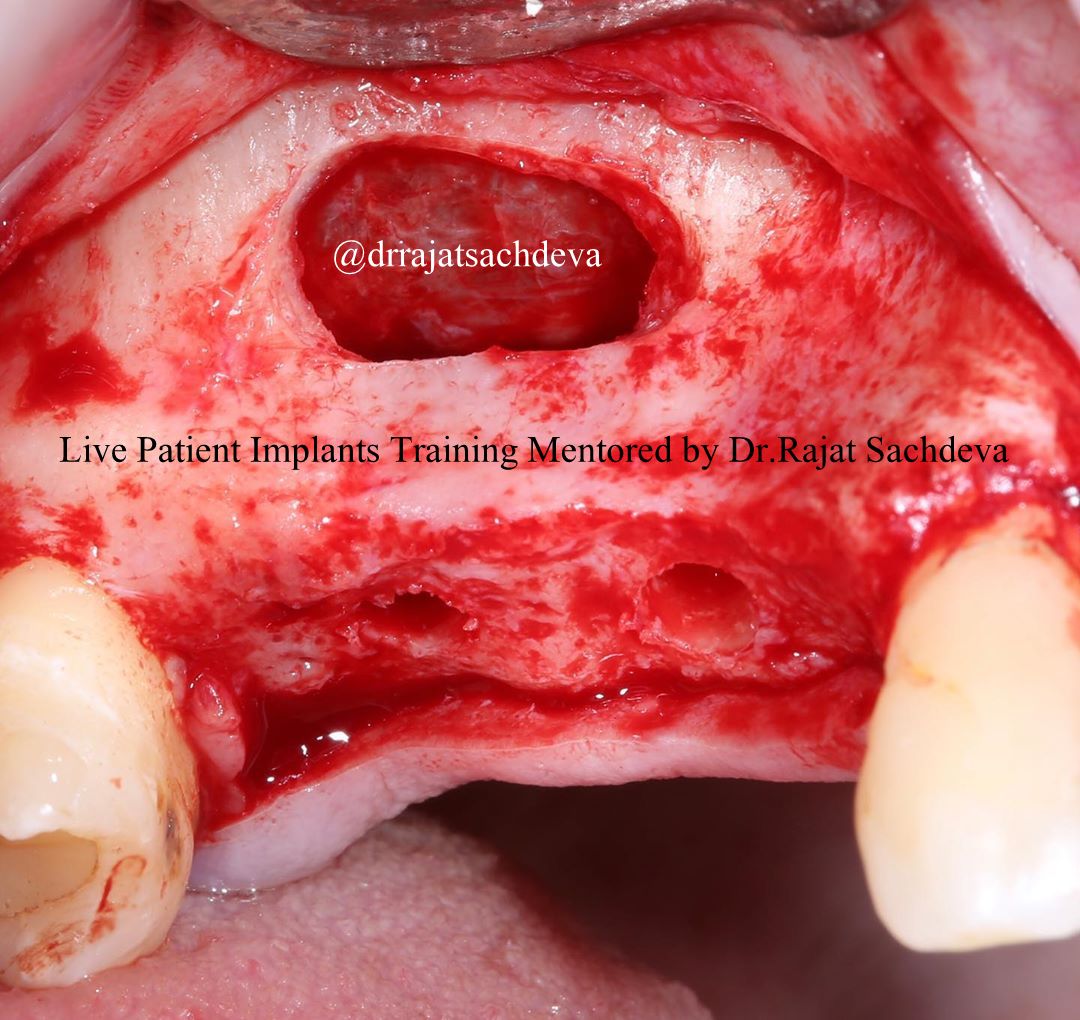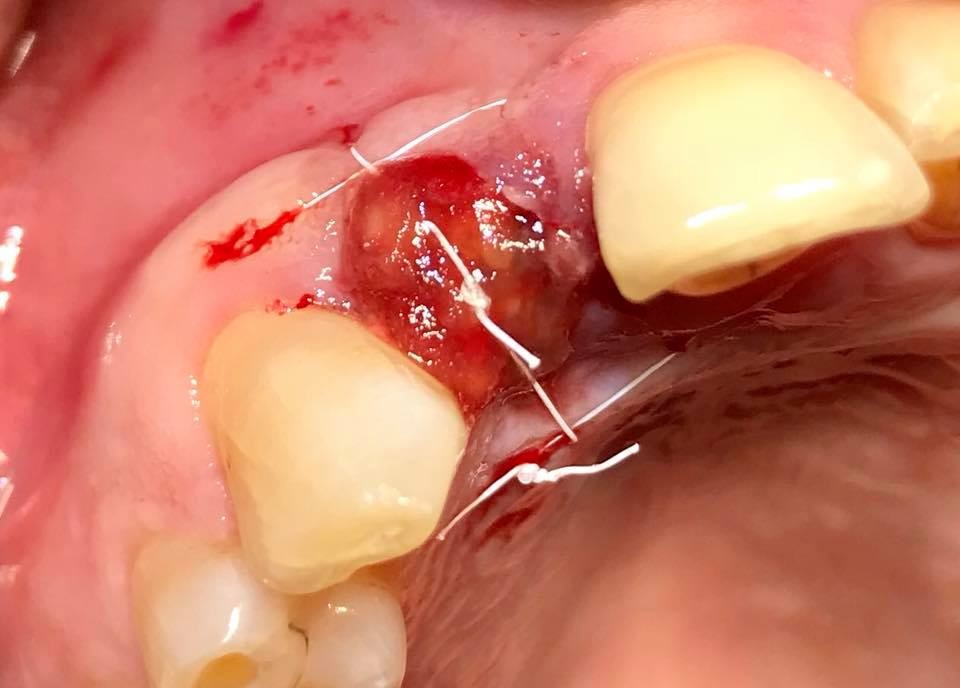Welcome to our master class
Dr. Rajat Sachdeva’s dental institute welcomes all of you to our unique 3 days course on UNDERSTANDING AND MANAGING IMPLANT COMPLICATIONS. We are committed to bringing a meaningful, affordable and competence-driven education to a global community of dental professionals. At our institute, we believe time is valuable and learning should be driven by actual needs of our patients so that we can serve them better.
We have invested a lot of time and effort in designing our course and our program is driven by the clinical needs, focused on efficient development of real skills. Our course is led by experts in the field of both clinical topics as well as research. We believe in learning for action.
What is this master class about?
If you have been working with dental implants for some time now, you are definitely aware that things don’t always go our way and we sometimes end up with complications and failures. When implant treatments go unexpectedly wrong, the chief cause of failure is often hidden and the clinical findings can be misleading. In this multidisciplinary course, you will learn how to find the real causes and how to design step-by-step the proper management strategies.
A little more about our course topic
The increasing application of dental implants has resulted not only in a significant increase in the number but also complexity of problems the dentists encounter with implant patients. Any failure or complication of implants can adversely affect the patients’ satisfaction and trust, given the invasiveness and cost of implant therapy, as well as the patients’ expectations.
Implant complications have been typically classified as biological, which mainly involves inflammation or pathology of the peri-implant tissues and technical which involves the various implant or prosthesis components. These two major groups of complications have been traditionally examined as separate and non-related pathologies.
Nevertheless, increasing evidence indicates the close interrelation between biology and technology. Most often, a biological problem could be the underlying factor for a technical failure and vice versa, which can be clinically manifested as screw loosening, veneer chipping or plaque induced peri-implantitis.
On this grounds, we believe that understanding of both biological pathogenic mechanisms, technical limitations as well proper comprehensive treatment planning is the key for the prevention and successful management of implant complications. We strictly adhere to these keys while treating our patients, and so we teach the same to our students.
This evidence-based yet highly practical course is devised with a comprehensive and inquisitive point of view, aiming to identify the common underlying factors of the most frequent types of problems encountered with dental implant treatments, whether it is technical or biological.
The course will help the students investigate the interrelation between the biological and technical causes and design the proper strategies for the prevention, the early diagnosis and management of implant related problems, and this is guided by actual patient cases.
How is this course organized?
We have organized this course by means of various modules, essential readings, lectures, clinical cases and discussions, live surgery and hands-on exercises.

COURSE OBJECTIVES
- Be able to diagnose and describe the etiology of peri-implantitis
- Understand the risk factors, prevention and treatment of peri- implantitis
- Understand the options for treatment of peri-implantitis
- Become familiar with the procedures for implant removal
- Performing an examination of a dental implant and restoration
- The difference between mucositis and peri-implantitis
- When is an implant considered failing?
- Various treatment options for a failing implant
- When do we “hang it up” and start over
COURSE HIGHLIGHTS
- Intra-surgical complications management
- Esthetic/soft tissue disaster management
- Post-surgical complications management
- Re-grafting solutions for the esthetic area
- Advanced prosthetic complications and management
- Medically compromised patients
- Screw mechanics and its implications
- Biomechanical complications and solutions
- Salvaging falling implants-bone, soft tissue and prosthetic synergy
- Managing full mouth disasters
- Diagnostics, communication and planning
- Decision making when complications occur
- Anatomical and surgical complications and risk factors
- Complications related to immediate implant placement
- Biomechanical complications
- Poor implant positions and treatment options
- Risk management, patient counseling and management
- Medical / Medication Complications – Learn and understand medical and medication related issues that lead to dental implant complications.
- Radiographic (CBCT) Complications – Understand CBCT related complications and the impact on dental implant treatment planning
- Treatment Planning (surgical & prosthetic) – Learn treatment planning factors which impact the surgical and prosthetic phases of implant dentistry.
- Intra-Operative / Positioning Complications – Learn various intra-operative complications and the consequences of poor positioning on implant longevity.
- Incision Line Opening – Learn how to prevent incision line opening and multi-factorial treatment protocol.
- Bone Grafting Complications – Learn how to prevent and treat complications arising from allograft and auto graft grafting.
- Clinical advancements in bone grafting procedures
- Posterior Mandible Complications – Learn and understand the prevention, etiology, and management of nerve related issues.
- Posterior Maxilla Complications – Learn the etiology, prevention, and management of maxillary sinus related complications.
- Management of deficient labial plate of bone in immediate implant placement procedures
- Surgical complications – implant related
- Management of residual bony defects
- Treatment of implant related gingival recession
Hands-on:
- Loma-Linda technique for management of sinus membrane perforations
- Immediate temporization in the esthetic zone
- Single Tooth/ Immediate Placement – Learn the treatment planning and surgical protocol for the immediate placement of dental implants.
- Retained Cement – Learn techniques on how to prevent retention of cement
- Screw Loosening / Fracture – Learn techniques to prevent and manage screw loosening and screw fractures.
- Fixed Prosthetic Complications – Understand the prevention of complications arising from fixed implant prostheses.
- Removable Prosthetic Complications – Understand the prevention of complications arising from removable implant prostheses.
- Peri-implant Complications – Learn and understand the etiology, prevention, and management of peri-implant complications.
- Peri-implantitis – diagnostics and management
- Management of soft tissue defects
- Restorative failures and complications
- Full arch complications
- Explanation and site management
- Surgical or prosthetic – poor aesthetic outcomes
- Treatment of the Ailing/Failing Implant – Learn treatment protocols for peri-implantitis and soft tissue related complications.
- Legal Considerations in Implant Dentistry – Learn how to prevent legal issues with dental implants and recommendations if involved with any type of legal proceeding.
Our goal is for all candidates to practice at the highest level of implantology and for it to become a successful, fun and profitable part of their daily practice.
Dr. Rajat Sachdeva believes that – “Ethics is knowing the difference between what you have the right to do and what is the right thing to do.”











